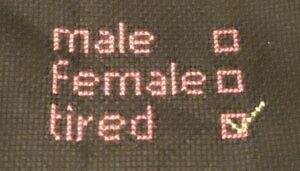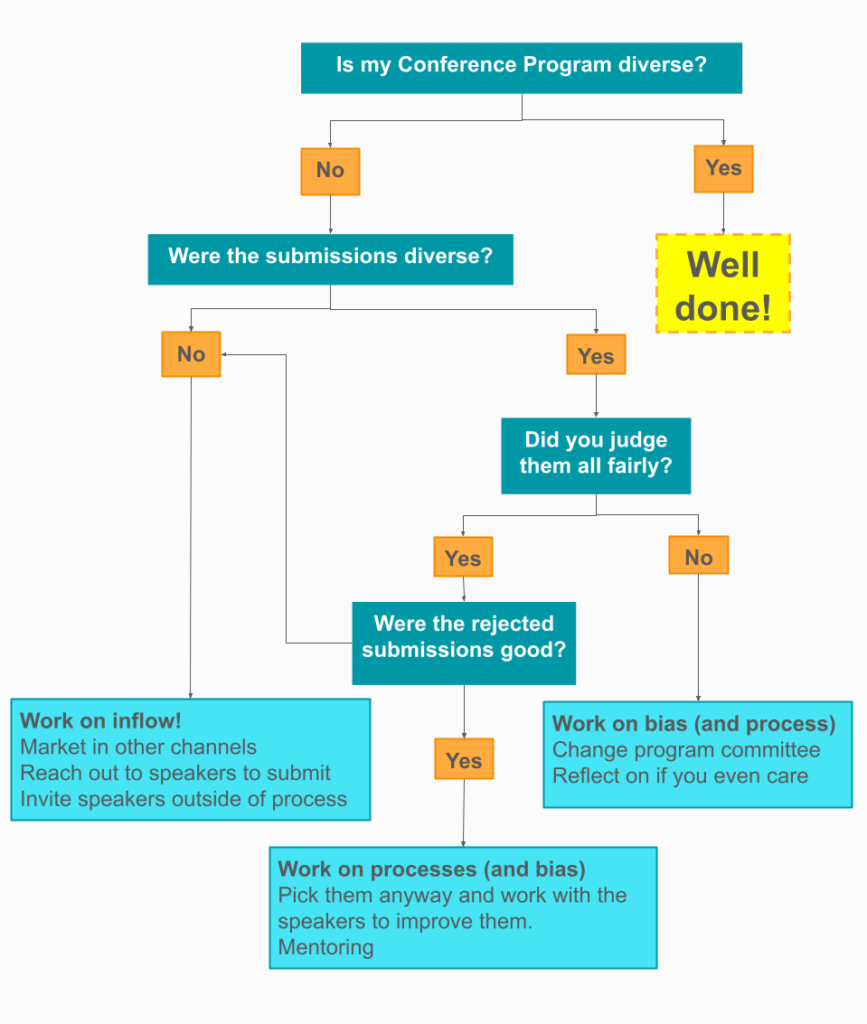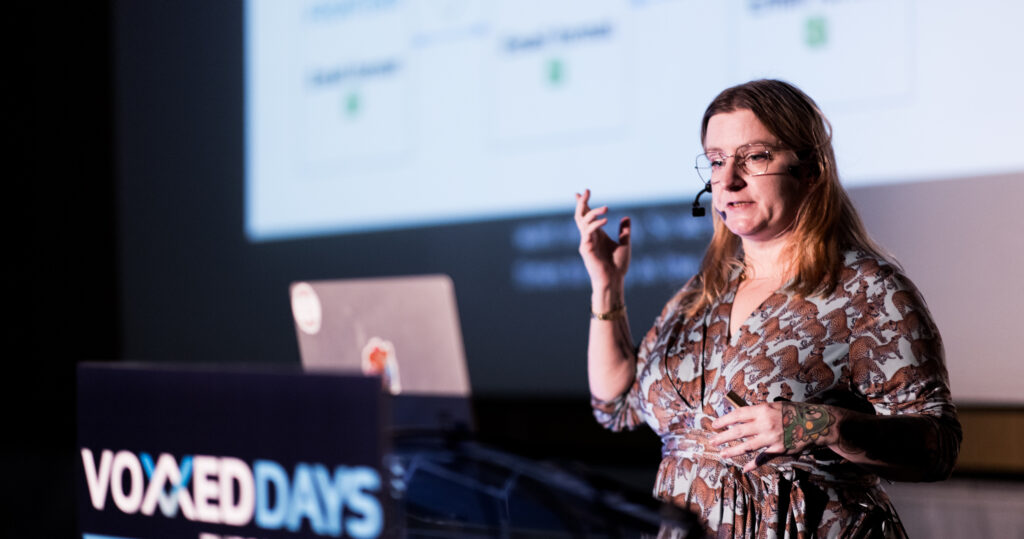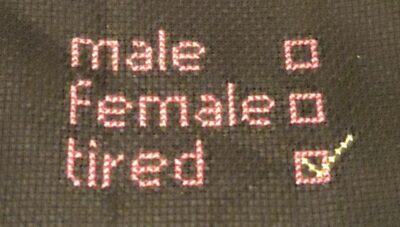
The organiser, program committee and program chair perspective
On an almost regular cadence, I end up reading about conferences getting heat for their lack of diversity in their speaker lineup. Sometimes I just observe from the sidelines, sometimes I get involved in the discussions. Most of the time – the organisers don’t react very well to the feedback given. Let’s get back to that part a bit later on.
The fact that this keeps happening to this day, and that conferences are still surprised and upset when called out on it, baffles me. It should actually be expected by now, considering the amount of scandals that have been following each other around the same topic.
This blog post is written in collaboration with a few of my friends – all with our own perspective.
Emna’s post focuses on the perspectives of being a speaker and regular conference attendee.
Jenna’s shows the perspectives of being a speaker as well as a sponsor. (NOTE: Links to Jenna’s post will be added as soon as it is published)
Mine focuses on my experiences from organising developer conferences as well as being program chair and part of program committees for several testing conferences. Testing has been easier, since we have a larger number of women in general, but also a lot more well-known speaker women to choose from, but even for the developer conferences we saw progress – so I know for a fact that it is doable!

What do I mean with a diverse lineup
When I say diverse lineup I mean having a set of speakers that represent as many different groups of people as possible. This can include making sure your lineup shows a mix of genders, races, age groups or a number of other things that give us different perspectives of the world. Some of these are very visual on a program, some are harder to see.
A diverse lineup has more than one or two token women. It has more than one or two token Black people. It is not enough to put a single woman doing a ”soft skills” talk on the program and pat yourself on the back.
I do *not* say you need to have a 50/50 split in every (or even any) dimension. I *do* say you should carefully consider what is a reasonable representation. Industry numbers could be a good indicator, improvement over time could be another perspective.
Why should any conference care?
As a conference today, when you present an almost exclusively male, almost exclusively white lineup – you should not be surprised with pushback and consequences – you should rather be expecting it.
It happened to CES and PHP.CE, among many others – what makes you think it will not happen to you?
If we ignore the obvious part where it is morally right and creates a better event – it is the financially correct thing.
More and more attendees look at the lineup before deciding to go – and they are getting more and more likely to call you out on your Manel (All-male panel). Having a diverse lineup increases the likelihood of attendees from a diverse background choosing to attend, meaning you increase your available pool of attendees. Ergo: Selling more tickets.
More and more speakers require conferences to consider diversity to accept being part of the program – and they are getting more and more willing to drop out of a program that doesn’t meet their standards. So: more diversity of your program means more speakers will be looking to attend your conference, means more talks to choose from, means the potential of getting access to more high-profile names which… sells more tickets. And let’s face it: having speakers drop out of your event, particularly doing it publicly and vocally, is not the best way of selling tickets.
If those two aspects are not enough – sponsors are following suit. Diversity is on top of the agenda for a lot of companies today and less companies are willing to be associated with a diversity problem. So they will be looking harder at your old programs, asking more questions about your work to increase diversity and becoming more aware of diversity as a key factor in where to place their money. Not to be ignored: dropping out of your conference if the heat turns up is actually likely to be a good publicity stunt for them.
So you really should be prepared for this and be aware of the risk you are taking – both from a financial perspective and from a PR one. Again – I hope you believe diversity is important enough to care about for other reasons than money and good PR – but if not: be aware that the above are factors to consider.
How to increase diversity in your lineup
Diversity takes work. And sometimes it will mean making choices that feel like they are counter-intuitive. (I’ll explain in a second!) But the good part is that diversity in itself feeds diversity – so by doing the work now – you will increase your diversity, and reduce the work you have to put in, in the future. For the following part of this article – I will focus on female speakers. You can swap ”female” out with any group of people you want to focus on from this point forward – I wholeheartedly believe it will work for them all.
About that counter-intuitiveness. I have seen and heard more than one conference say ”But we have an extremely fair process for selecting talks! We have this totally transparent process <insert link here>, and even if we would choose every woman who applied, we would only have 20% female speakers!”
Jupp. You are totally right! I agree fully that you should not select bad abstracts (or however you select talks) just to fill a quota. That is not what I am expecting from you. It’s worse.
I expect you to:
- Believe there are just as competent women out there
- Make diversity a bigger priority than ”fairness”
- Put in work to court them
- Challenge your own biases
- Look into your compensation policy
- Put in goals, follow up on progress and reflect on the results
So let’s go through them one by one:
Believe there are just as competent women out there
If you don’t believe this, be honest about it and stop saying you care about diversity. Don’t say it’s important while still secretly thinking it’s women’s fault for not being as assertive, as competent, as outspoken. If you want to be convinced – There are tons of directories and listings out there, one quick googling away. Trust me – they are there. They are just not applying for your conference.
Make diversity a bigger priority than ”fairness”
I mentioned earlier that diversity feeds diversity – but to get there requires choices that might not feel comfortable for you. For one – you are likely forced to make tradeoffs with your ”fair and equal” selection process. Yes, you will have to reach out to people. You can try just reaching out and asking people to apply – that will probably increase your numbers a bit – but most likely you will have to set aside spots for whatever group you want to increase. Seeing lack of diversity on old programs means less diverse applications – the opposite also applies: having a diverse program this year (and especially consistently over time…) means more diverse applications.

Sometimes it might mean picking a *slightly less* great abstract if you have two similar abstracts where one would add diversity to your program. The important part here being that they are both good. No one is asking you to select bad abstracts or speakers you know are not good. But if one is a 9 and one is a 10, that 9 might be more valuable to you in the long run. It’s also good to remember that abstract writing is an art in itself, you can work with the abstracts that are good enough and get them just as good.
Put in work to court them
Find channels where the people you want to reach are – and market your conference there. Ask people to advertise it, ask for recommendations. Don’t just rely on people knowing where to find you, or on your existing marketing channels. There are so many forums, mailing lists, groups on facebook or LinkedIn, slack channels etc out there that you can use to expand your network. Use social media, use your networks, research speakers that have given talks that have gotten good recommendations and reach out to those speakers. If they say no – ask them for more recommendations. It. Takes. Work. But it works. And with every improvement – the work becomes easier.
Challenge your own biases
Look hard into yourself, and your old programs. Do you naturally think a male speaker will be more believable? Are you finding it easier to select women for … softer topics? While naturally leaning towards the same type of speaker for the deep technical talks? Do you honestly judge all speakers fairly or are you harder on some? If you happen to justify your lineup with “Women are just naturally not as <insert reason here> as men, that’s why we don’t get this result” – you should really take some time to reflect on your views on women and never ever call yourself an ally again.
Look into your compensation policy
Will speaking at your conference cost money for the speaker? In that case – be aware that this means a lot of potential speakers, especially from less privileged groups, will have to choose not to. Yes, this means you will have to look hard on other ways of keeping costs down, or increase income. Yes, me asking you to pay more and put more work in puts more load on your staff- which is likely unpaid. I am sorry but that is just how it is. You can’t have the cake and eat it too.
Put in goals, follow up on progress and reflect on the results
And then you measure, reflect – create new goals and repeat. Over, and over, and over again. Until you have reached a lever you are comfortable with. And then you don’t get lazy and think it won’t be more work.
How to deal with the heat if (when) you are called out
This one is easy, in theory, while being really hard in practice – because we are all human. We all think of ourselves as good people. So we will defend ourselves when called out. Unfortunately, this is also the wrong thing to do.
Instead, if someone questions you – pause. Stay in that uncomfort and reflect on the feedback you just got. Is it actually valid and true? Do you want to do better?
Great! Then I suggest you ask follow up questions, present your thoughts and processes – without defending yourself, acknowledge you didn’t do great. And then go back and try to do better. Ask for help, ask for recommendations, ask for ideas – but actually listen to them when you get them. Don’t ask and then reject every suggestion you get because they make you feel like a bad person.
If you don’t think my suggestions are good or right, continue doing research. A quick googling gave me links such as this or this.
Also, please don’t go the DevTernity route and fake diversity.
Let’s wrap this up
If you are a conference trying to increase diversity – I apologise you read this far without getting an easy way forward. It is hard work, and it will probably challenge a lot of other beliefs. To me, it is worth every ounce of work put in.
To give you a bit of help, perhaps this could be helpful:
- If you don’t get any diversity in your submissions at all: your problem lies early in the funnel. Your priority should likely be to go looking for speakers instead of waiting for them to find you.
- If you get submissions but you find yourself not picking them: your problems might be related to your selection process and biases. Your priority should likely be to increase diversity in the program committee and looking at ways to help the speakers improve their submissions.

And remember: It is perfectly possible to be a good person and still make bad/wrong choices. What sets you apart is how you react when called out on it.
With Love, Pejgan.

